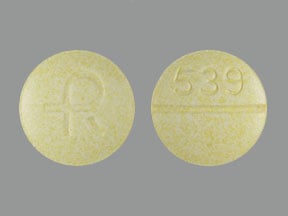
My prescription
Edit
25-100MG, Carbidopa-levodopa (90 Tablets)
Select pharmacy

CVS
$23.56
COUPON PRICE
Walgreens
$15.45
COUPON PRICE
Albertsons
$18.63
COUPON PRICE
Walmart
$23.87
COUPON PRICECarbidopa-levodopa savings card
Show this card to your pharmacist
Walgreens
$15.45
BIN
ID
PCN
GRP
019876
LH9F6EDC3E
CHIPPO
LHX
Powered by
More prescriptions for Parkinson's disease
More prescriptions for Parkinson's disease
Price history for Dhivy (brand) & Carbidopa-levodopa (generic)
90 Tablets, 25-100MG
Average retail price for Dhivy
Average retail price for Carbidopa-levodopa
Average SaveHealth price for Carbidopa-levodopa
Our price history data is based on aggregated prescription data collected from participating pharmacies in America. Our prescription data updates daily to reflect the latest price changes. If you notice a missing data point, it means there wasn't sufficient data available to generate a monetary value for that date.
We analyzed Carbidopa-levodopa prices for (25-100MG, 90 Tablets) over the last 12 months. The average retail price was $114.92, while the average price using the SaveHealth discount card was $12.95. That's a savings of approximately 88.73% when using our Carbidopa-levodopa coupon.
Compared to the generic version, Dhivy had an average price of $391.41 over the same time period. With the SaveHealth savings card, Carbidopa-levodopa is 96.69% cheaper on average than Dhivy.
*Retail prices are based on pharmacy claims data, and may not be accurate when we don't have enough claims.
Carbidopa-levodopa dosage forms
Dosage Quantity Price from Per unit 10-100MG 1 Tablet $9.08 $9.08 10-100MG 30 Tablets $11.38 $0.38 10-100MG 60 Tablets $13.76 $0.23 10-100MG 90 Tablets $16.15 $0.18 10-100MG 100 Tablets $16.94 $0.17 10-100MG 120 Tablets $18.53 $0.15 10-100MG 180 Tablets $30.98 $0.17 10-100MG 240 Tablets $36.31 $0.15 10-100MG 500 Tablets $55.50 $0.11 10-100MG 1000 Tablets $84.70 $0.09
| Dosage | Quantity | Price from | Per unit |
|---|---|---|---|
| 10-100MG | 1 Tablet | $9.08 | $9.08 |
| 10-100MG | 30 Tablets | $11.38 | $0.38 |
| 10-100MG | 60 Tablets | $13.76 | $0.23 |
| 10-100MG | 90 Tablets | $16.15 | $0.18 |
| 10-100MG | 100 Tablets | $16.94 | $0.17 |
| 10-100MG | 120 Tablets | $18.53 | $0.15 |
| 10-100MG | 180 Tablets | $30.98 | $0.17 |
| 10-100MG | 240 Tablets | $36.31 | $0.15 |
| 10-100MG | 500 Tablets | $55.50 | $0.11 |
| 10-100MG | 1000 Tablets | $84.70 | $0.09 |
| 25-100MG | 90 Tablets | $15.45 | $0.17 |
| 25-100MG | 1 Tablet | $1.01 | $1.01 |
| 25-100MG | 30 Tablets | $11.15 | $0.37 |
| 25-100MG | 60 Tablets | $13.30 | $0.22 |
| 25-100MG | 100 Tablets | $16.17 | $0.16 |
| 25-100MG | 120 Tablets | $17.60 | $0.15 |
| 25-100MG | 180 Tablets | $21.91 | $0.12 |
| 25-100MG | 240 Tablets | $26.21 | $0.11 |
| 25-100MG | 270 Tablets | $35.66 | $0.13 |
| 25-100MG | 360 Tablets | $42.54 | $0.12 |
| 25-100MG | 500 Tablets | $53.26 | $0.11 |
| 25-100MG | 1000 Tablets | $84.70 | $0.09 |
| 25-250MG | 1 Tablet | $1.01 | $1.01 |
| 25-250MG | 30 Tablets | $12.45 | $0.41 |
| 25-250MG | 60 Tablets | $15.90 | $0.27 |
| 25-250MG | 90 Tablets | $19.35 | $0.21 |
| 25-250MG | 100 Tablets | $20.50 | $0.20 |
| 25-250MG | 120 Tablets | $22.80 | $0.19 |
| 25-250MG | 180 Tablets | $36.95 | $0.20 |
| 25-250MG | 240 Tablets | $44.26 | $0.18 |
| 25-250MG | 270 Tablets | $46.55 | $0.17 |
| 25-250MG | 500 Tablets | $63.80 | $0.13 |
| 25-250MG | 1000 Tablets | $101.30 | $0.10 |
